'The Crown' Tackles the Aberfan Disaster
The disaster devastated a small village in Wales.
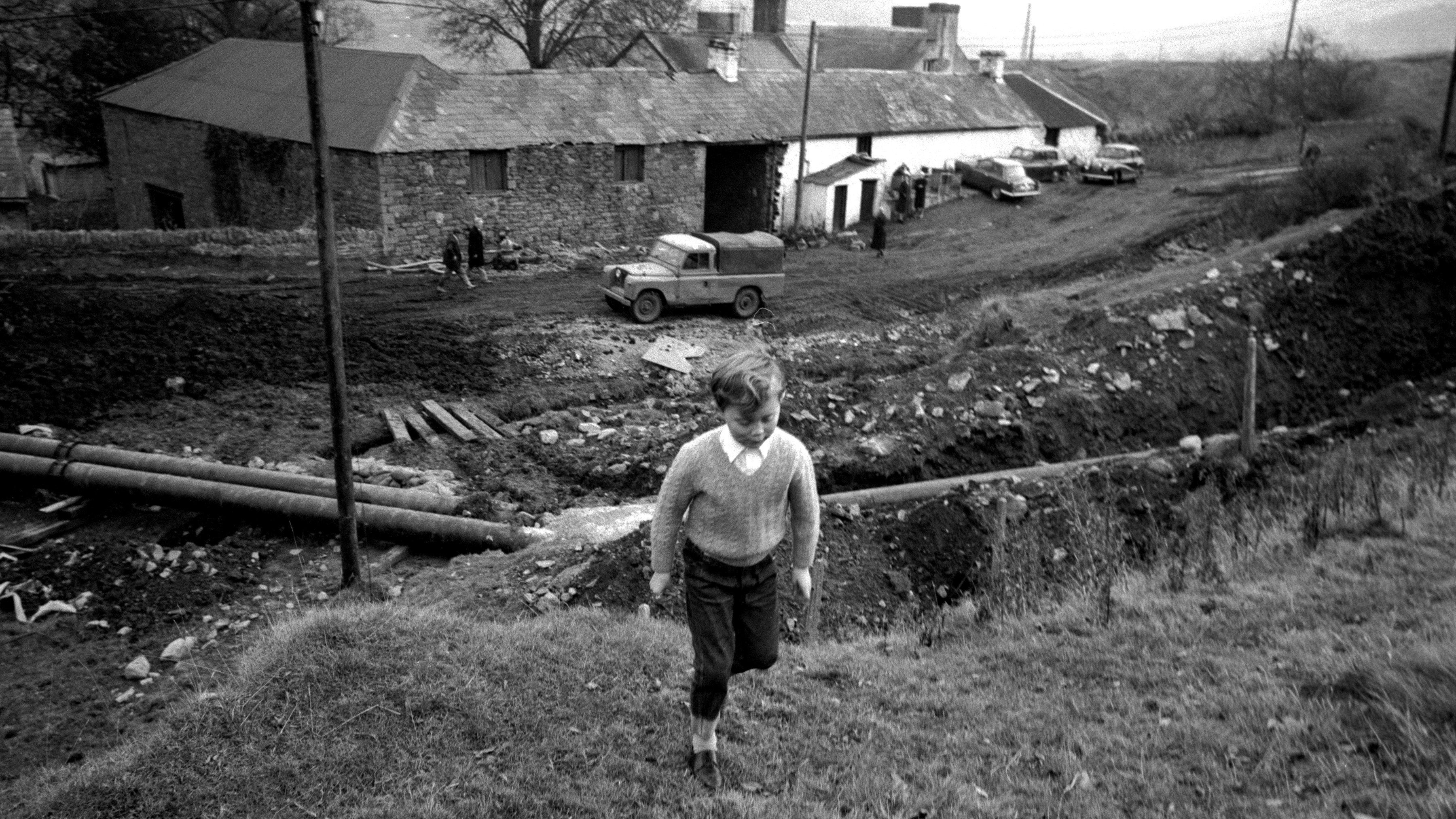
Last fall, during filming of The Crown season three, the show's producers released a statement announcing that an episode of the newest season would cover the Aberfan disaster, one of the most devastating events in modern British history. The cast and producers of The Crown made clear that they took care to speak to survivors and remain sensitive and respectful in the show's depiction of the event—and the episode was not filmed in Aberfan itself, out of respect to what the village has already endured.
The Aberfan disaster of 1966 occurred on an otherwise unremarkable day in the small Welsh mining village of Aberfan. A poorly managed spoil tip collapsed, causing a large slurry of coal waste down a hill—to those at the bottom of the hill, it would have seemed like a black avalanche—that hit the local junior school just after classes had begun that morning. The school was all but buried in the debris; 144 people died, 116 of which were children. The disaster has been described as "the mistake that cost a village its children."
Immediately following the disaster, the BBC reported, there was complete silence. A teacher in the adjacent school later said: "Everything was so quiet...As if nature had realized that a tremendous mistake had been made and nature was speechless.”
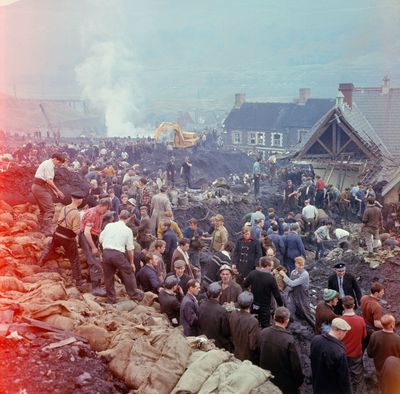
The scene of the disaster.
Heartbreakingly, many residents of Aberfan, desperately seeking to rescue their children, dug through the rubble all through the day and night. The disaster occurred just after 9.15 a.m.; after 11 a.m., no more survivors were found. In the hours afterwards, members of the media, politicians, and various royals—including Princess Margaret's husband Lord Snowdon, who was of Welsh descent and was one of the first public figures on the scene—descended on Aberfan, along with rescue workers. The tragedy still haunts Britain; the 50th anniversary of the disaster saw a multitude of remembrance services, one of which was attended by Prince Charles, and many shared poignant memories of the event.
In a 2018 statement, The Crown's producers said:
"The third season of The Crown will cover the major historical events of Elizabeth II's reign from 1963-1977 and all strongly felt the Aberfan disaster and the events that followed must be included, especially as it continues to hold a deep resonance for the nation and the Queen herself. As producers, we feel a responsibility to remain true to the memory and the experience of the survivors, so have met with community leaders, as well as the people of Aberfan on a number of occasions as part of our in-depth research and to discuss our approach. We have been made to feel welcome by the residents who have been very helpful in providing insight into one of the most tragic events of the 20th Century."
Tobias Menzies, who plays Prince Philip in season three spoke to Wales Online about the decision to cover the tragedy: "I was aware of the name, but I didn’t know a great deal about it, actually." Menzies added to Wales Online: "When we were there, we were talking to local people and people felt pleased that the story was being retold...I certainly felt confident that it was going to be told in a very respectful way that it wasn’t going to be sensationalised. Everyone through the production team from Peter [Morgan, The Crown's showrunner] down were really dedicated to doing that event justice."
Stay In The Know
Get exclusive access to fashion and beauty trends, hot-off-the-press celebrity news, and more.
Indeed, the "Aberfan" episode is the best episode of season three, and quite possibly the strongest of the entire series. The tragedy is masterfully, painstakingly rendered, and the entire cast, particularly Colman, puts in Emmy-deserving work in their portrait of a royal family that feels hopeless. The episode reveals the most human side of Colman's Queen that we ever see in season three—a woman who, contrary to her public perception as "cold," is desperately worried that she isn't capable of feeling the emotions in public that her role demands of her, and, of course, has long been discouraged from showing in any sense. It's an intriguing look into what it must feel like to be the woman forced to be utterly stoic 95 percent of the time, and openly emotional during the remaining 5 percent, when tragedy hits her nation and she is called to mourn. In the final moment of the episode, while listening to a rendition of the hymn sung at a mass funeral by the residents of Aberfan, she begins to cry—sincerely, and in private.
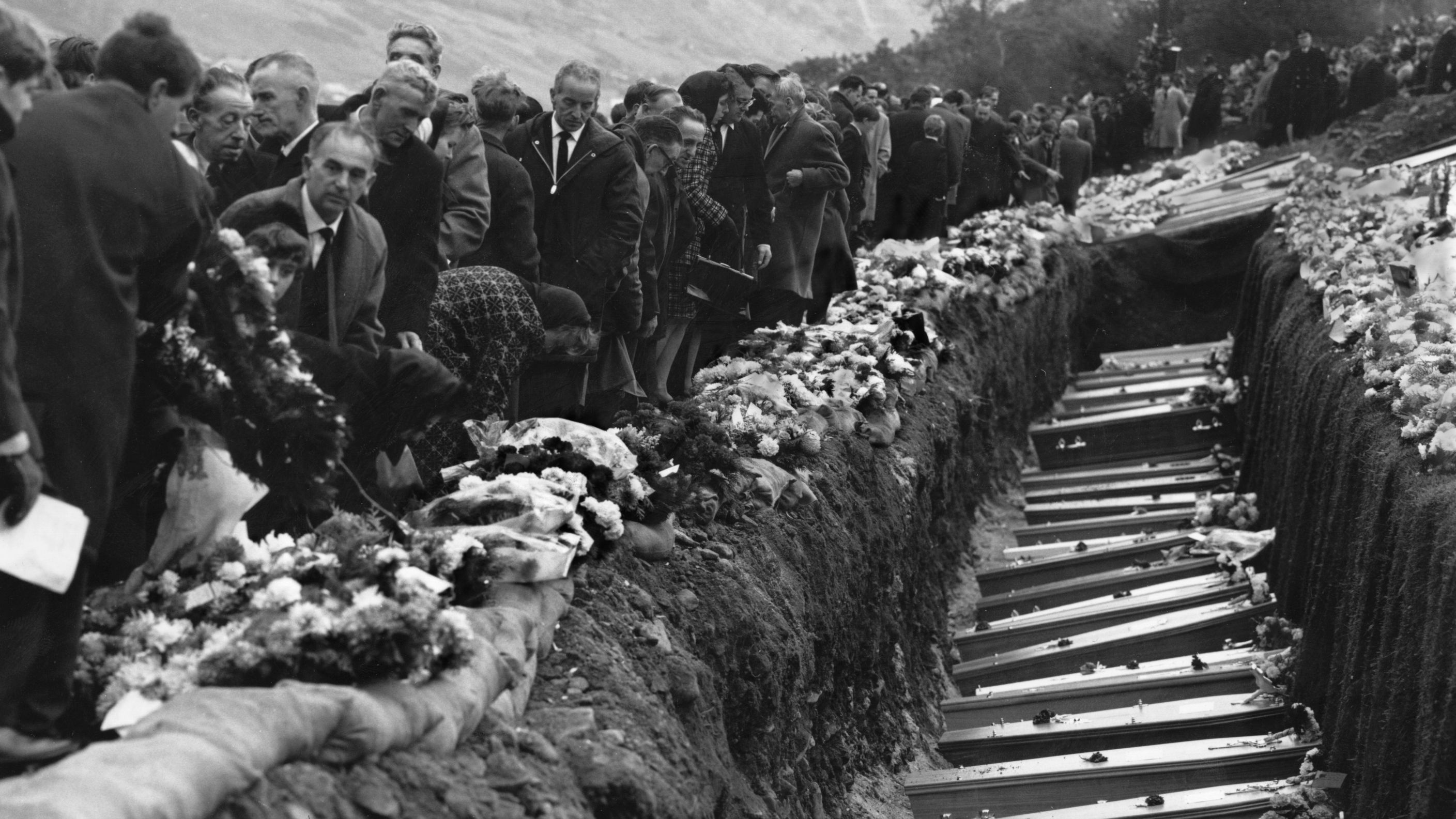
The mass funeral of 81 of the children who died.
Much has been written about the real-life tragedy of Aberfan, particularly about how preventable the disaster was. The National Coal Board has been blamed for the event—the spoil tip was built atop a foundation that included streams and springs, which had contributed to previous, smaller slides down the hill. This spoil tip itself was a known problem to NCB management in the region, the official tribunal found, and yet nothing had been done about the clear risk to the village. While the NCB was not fined or charged, the disaster did lead to the Mines and Quarries (Tips) Act of 1969, which sought to make sure these mistakes were not repeated.
You can read vivid, in-depth accounts of the Aberfan disaster here and here.
-
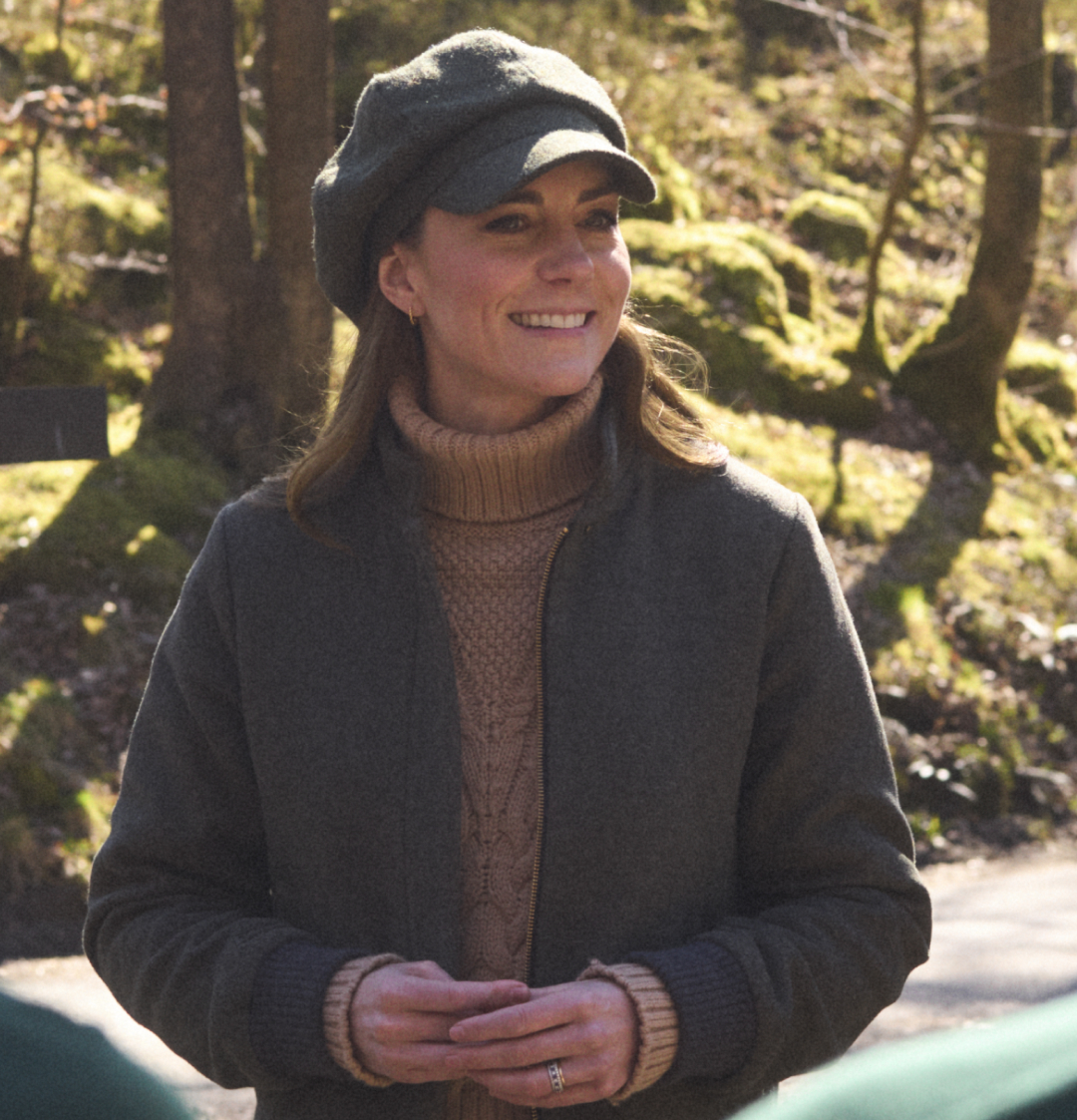 Princess Kate Opens Up About "Spiritual" and "Very Intense" Feelings in Surprise New Video
Princess Kate Opens Up About "Spiritual" and "Very Intense" Feelings in Surprise New VideoThe Princess of Wales shared one thing that has helped her find "peace and reconnection" amid her health battle.
By Kristin Contino Published
-
 Thank You, Zendaya, For Reminding Us Why This Minimalist Updo Is a Forever Summer Staple
Thank You, Zendaya, For Reminding Us Why This Minimalist Updo Is a Forever Summer StapleSnatched hair in a flash.
By Hannah Baxter Published
-
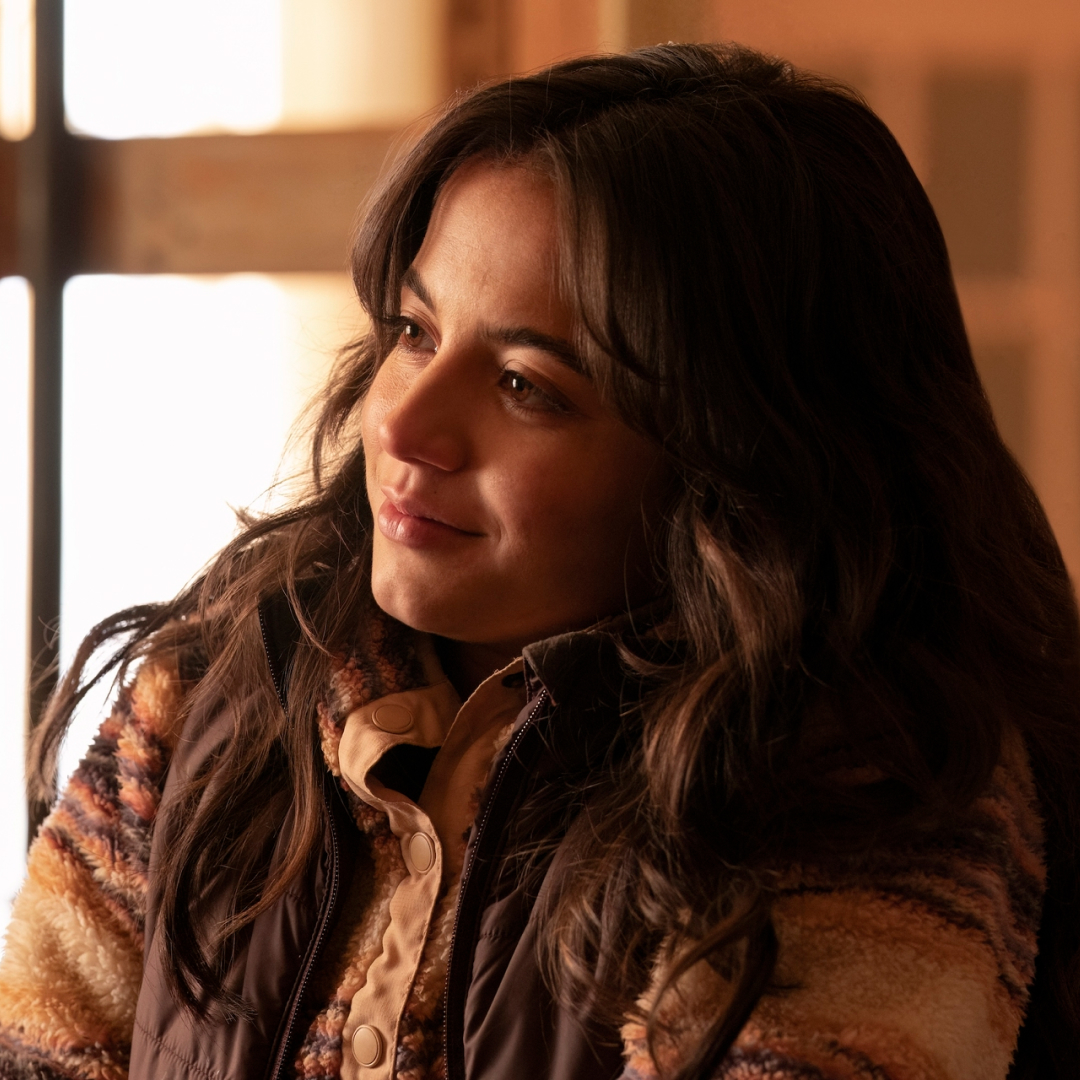 Meet Isabela Merced, Who Plays Dina in 'The Last of Us' and Calls Her and Ellie's Romance a "Successful Sapphic Story"
Meet Isabela Merced, Who Plays Dina in 'The Last of Us' and Calls Her and Ellie's Romance a "Successful Sapphic Story"We're already obsessed with this up-and-comer.
By Quinci LeGardye Published
-
 Meet Isabela Merced, the Rising Star Who Plays Dina in 'The Last of Us'
Meet Isabela Merced, the Rising Star Who Plays Dina in 'The Last of Us'We're already obsessed with this up-and-comer.
By Quinci LeGardye Published
-
 What to Know About Taylor Dearden, the Actress Who Plays Dr. Mel King on 'The Pitt'
What to Know About Taylor Dearden, the Actress Who Plays Dr. Mel King on 'The Pitt'Here's what to know about the Max series's breakout star, who just so happens to come from TV royalty.
By Quinci LeGardye Published
-
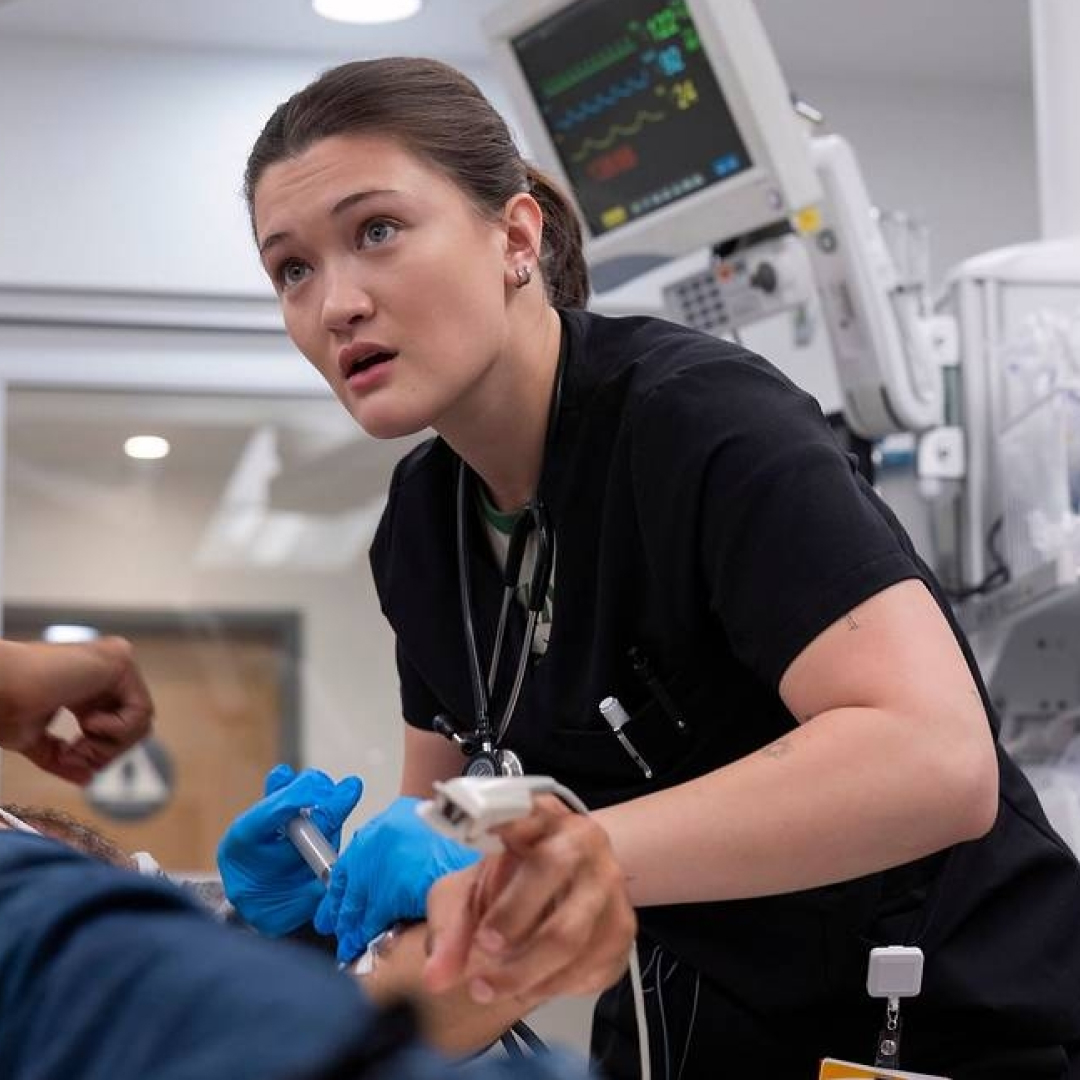 We Owe Dr. Trinity Santos From 'The Pitt' an Apology
We Owe Dr. Trinity Santos From 'The Pitt' an ApologyThe season finale of the smash Max series proved that the most unlikable character on TV may just be the hero we all need.
By Jessica Toomer Published
-
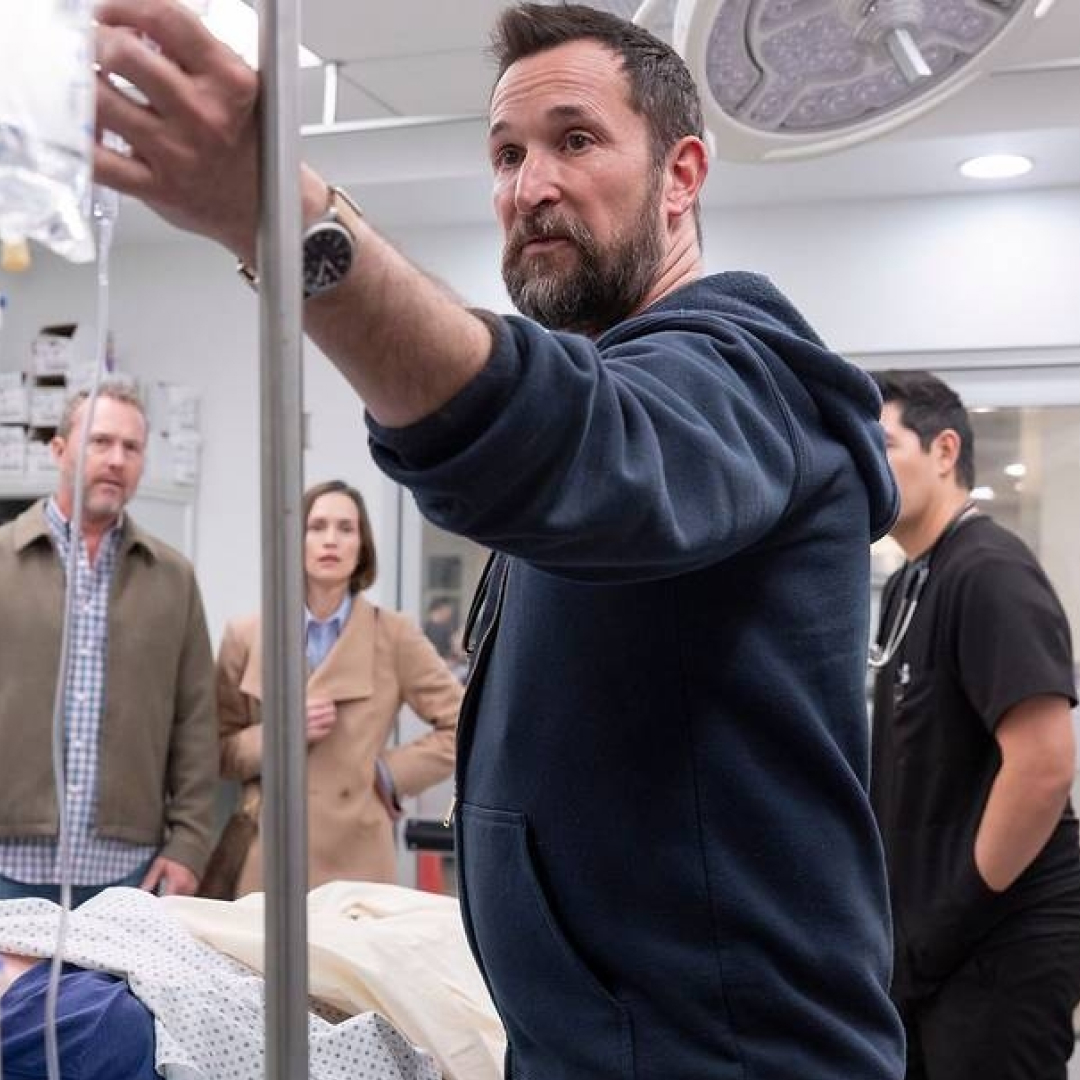 'The Pitt' Season 2: Everything We Know
'The Pitt' Season 2: Everything We KnowHere's where the hit Max medical drama could go after its gripping finale.
By Radhika Menon Published
-
 Meet Nicholas Duvernay, the Actor Who Plays Zion in 'The White Lotus' Season 3
Meet Nicholas Duvernay, the Actor Who Plays Zion in 'The White Lotus' Season 3We can't stop thinking about his scene-stealing performance in the finale.
By Quinci LeGardye Published
-
 'The White Lotus' Season 4: Everything We Know
'The White Lotus' Season 4: Everything We KnowCreator Mike White has already started teasing where the next installment will be set—and who might be back.
By Quinci LeGardye Published
-
 'Pulse' Season 2: Everything We Know
'Pulse' Season 2: Everything We KnowWe need to know about the future of the central will-they-won't-they STAT.
By Quinci LeGardye Published
-
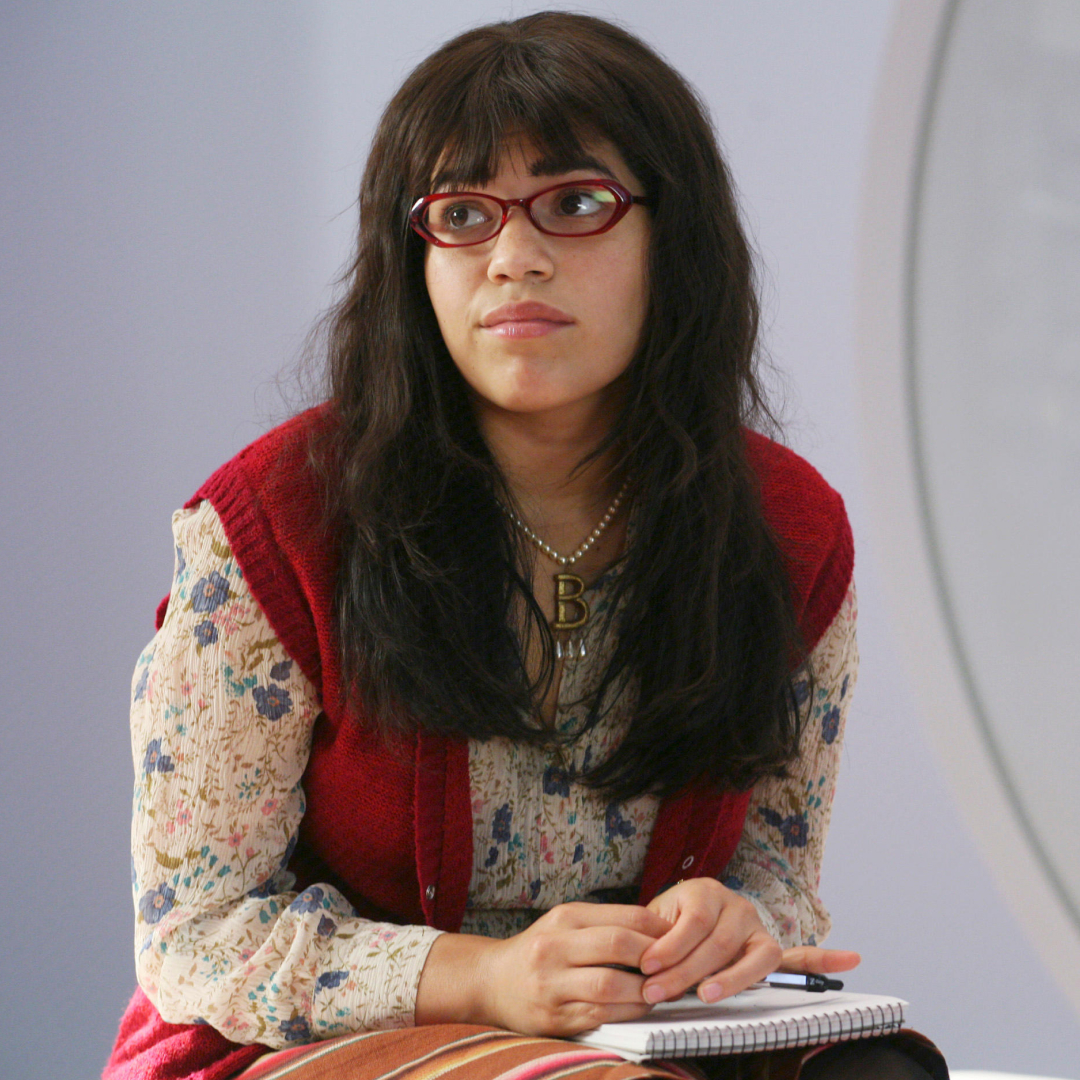 The Best Workplace TV Shows of All Time
The Best Workplace TV Shows of All TimeFrom iconic sitcoms to award-winning dramas.
By Iris Goldsztajn Published